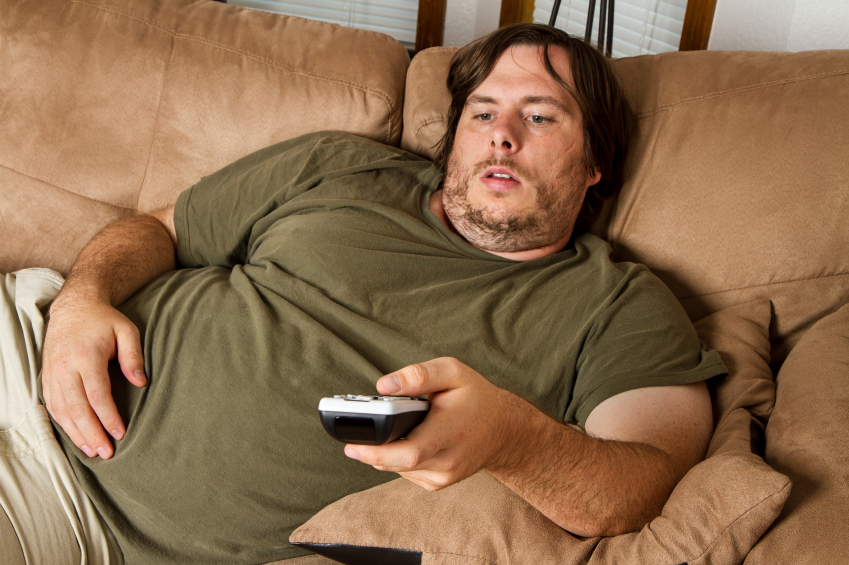
Not exercising enough could cause twice as many deaths per year than obesity, according to a study taken by Cambridge University. So we look further into the question; Is Inactivity Worse Than Obesity?
The Study
334,161 thousand people have taken part in a study with Cambridge University. The study is the ‘European Prospective Investigation into Cancer and Nutrition Study’ or (EPIC). Between 1992 and 2000, researchers from the university measured peoples weight, height and waist circumference. Self assessment was then used to track the subjects levels of physical activity. Over the 12 years of the study, 21,438 of subjects taking part in the survey had passed away.
Researchers have found that the greatest way in which to reduce the risk of premature death, is by partaking in physical activity. Now this doesn’t mean that the findings of EPIC are advising us to join up for marathons or cycle across Europe, but simply partake in regular gentle exercise. The cohort was split into categories for this particular study, which were based on a participants activity levels.
Which Category do you fall in to?
Inactive– To be classed as inactive, you would report no recreational physical activity combined with a sedentary occupation. This made up 22.7% of the 334,161 participants.
Moderately In-Active– To be placed above the inactive group, participants are required to burn between 90-110 calories per day from physical exercise. This is equivalent to a 20 minute brisk walk per day.
Active– You would be classed as active, if you were to burn over an average of 110 calories per day from physical exercise.
The effects
Completing just 20 minutes per day of moderate exercise, which places you above the inactive range, reduced the risk of premature death by 16-30%! The group which saw the lowest rate of risk in this study, was participants where they were of ‘normal’ weight, but people who were in the ‘overweight’ category still saw a reduced risk of death.
From data collected in the study, it was estimated that 3.6% of the 9.2 million deaths throughout Europe can be attributed to obesity, but DOUBLE of the number of deaths in Europe can be attributed to inactivity. That is 676,000 deaths.
The leader of the study, Professor Ulf Ekelund from the Meidical Research Council Epidemiology Unit at the university of Cambridge, said:
“This is a simple message: just a small amount of physical activity each day could have substantial health benefits for people who are physically inactive. Although we found that just 20 minutes would make a difference, we should really be looking to do more than this – physical activity has many proven health benefits and should be an important part of our daily life.”
Targeting both!
Reducing weight can seem like a mountainous task, but it’s much easier if you make it a lifestyle change, rather than a quick fix. Unless you make a conscious decision to take your weight management seriously, you are destined to forever ride the dieting roller coaster.
Relying on fad diets is not healthy and will certainly keep you frustrated, as your body will constantly re-adjust back to your original weight. It’s easy to overcome this by changing what you eat on a daily basis, without starving yourself or relying on expensive diet food.
The key is to dr
op the processed foods, especially things like biscuits, cakes and chocolate etc and eating more wholesome foods, which actually feed your body and discourage fat storage. Don’t worry, it’s not as boring or difficult as you might think.
Obviously Adding exercise will without doubt increase your fat loss and also improve your health by a huge amount, as you can see from the results above.
It’s also important because losing weight rapidly without exercise is unhealthy and can actually cause problems rather than solve them. Exercise does not mean spending hours at the gym. You can add simple, gentle exercises in the comfort and privacy of your own home, which will help shift your unwanted fat, help your lymphatic system to detox your body and of course, improve your health.
Another key to success is ensuring that you are still intaking enough protein, vitamins and minerals, so your body is well fed nutritionally. You can also use supplements to help such things as calming your appetite, sugar cravings and digestion issues, safely and healthily.
So . . . we recommend that you begin a gentle exercise routine, adjust your diet to help you burn fat and add a specific supplement or two to match your goals and give your efforts a real boost. By doing this you will certainly get much better results, keeping you happy, motivated and finally getting off the dieting roller coaster forever.
More About the EPIC Studies
The EPIC study goes far and beyond this finding, and is one of the largest cohort studies in the world. The study has more than half a million (521 000) participants, spanning 10 European countries and has so far lasted for over 15 years.
The aim of EPIC is to investigate how the relationship between diet, nutritional status, lifestyle and environmental factors, affect the incidence of cancer and other chronic diseases. Paid for by grants from the European commission and tens of other foundations across Europe including the British Heart Foundation and the Medical Research Council, you can expect to see further research developments and findings.
As this uses one of the largest ever cohorts, you can be assured that findings from EPIC are much more reliable, than when you see research that analysis much, much smaller cohorts. You can view the EPIC official website here.
Other relevant studies
EPIC has already found key results across a range of studies. Here are a range of them:
- Lowered sodium from salt intake, high potassium from fruit and vegetable consumption promote healthy blood pressure levels
- High physical activity, involving some high impact activities is a good indicator of longevity and low risk of bone fractures
- High dietary fibre protects against bowel cancer
- Obesity increases a number of cancer risks
- High levels of sex hormones increase risk of breast cancer
- Increased fat intake increases the risk of breast cancer
- Increases in eating fruit and vegetables reduces the risk from all causes of an early death
- High blood glucose levels are associated with increased risk of heart disease
- The combined impact of four behaviors – not smoking, being physically active, moderate alcohol intake and the consumption of at least five fruit and vegetable servings a day – was estimated to amount to 14 additional years of life (Khaw et al. 2008)
Subsequent findings from 2012 and 2013 are:
- Dietary flavonoid intake is associated with reduced gastric carcinoma risk in women but not in men
- Regular consumption of processed meat increases the risk of cardiovascular diseases and death from cancer
